Abstract
OBJECTIVE: To determine the effectiveness of a health check and assess any particular benefits resulting from feedback of plasma cholesterol concentration or coronary risk score, or both. DESIGN: Randomised controlled trial in two Glasgow work sites. SUBJECTS: 1,632 employees (89% male) aged 20 to 65 years. INTERVENTIONS: At the larger work site, (a) health education; (b) health education and feedback on cholesterol concentration; (c) health education and feedback on risk score; (d) health education with feedback on cholesterol concentration and risk score (full health check); (e) no health intervention (internal control). At the other work site there was no health intervention (external control). MAIN OUTCOME MEASURES: Changes in Dundee risk score, plasma cholesterol concentration, diastolic blood pressure, body mass index and self-reported behaviours (smoking, exercise, alcohol intake, and diet) in comparison with internal and external control groups. RESULTS: Comparisons between the full health check and the internal control groups showed a small difference (0.13 mmol/l) in the change in mean cholesterol concentration (95% confidence interval 0.02 to 0.22, P = 0.02) but no significant differences for changes in Dundee risk score (P = 0.21), diastolic blood pressure (P = 0.71), body mass index (P = 0.16), smoking (P = 1.00) or exercise (P = 0.41). Significant differences between the two groups were detected for changes in self-reported consumption of alcohol (41% in group with full health check v 17% in internal control group, P = 0.001) fruit and vegetables (24% v 12%, P < 0.001), and fat (30% v 9%, P < 0.001). Comparison of all groups showed no advantage from feedback of cholesterol concentration or risk score, or both. CONCLUSIONS: The health check only had a small effect on reversible coronary risk. It was effective in influencing self reported alcohol consumption and diet. Feedback on cholesterol concentration and on risk score did not provide additional motivation for a change in behaviour.
Full text
PDF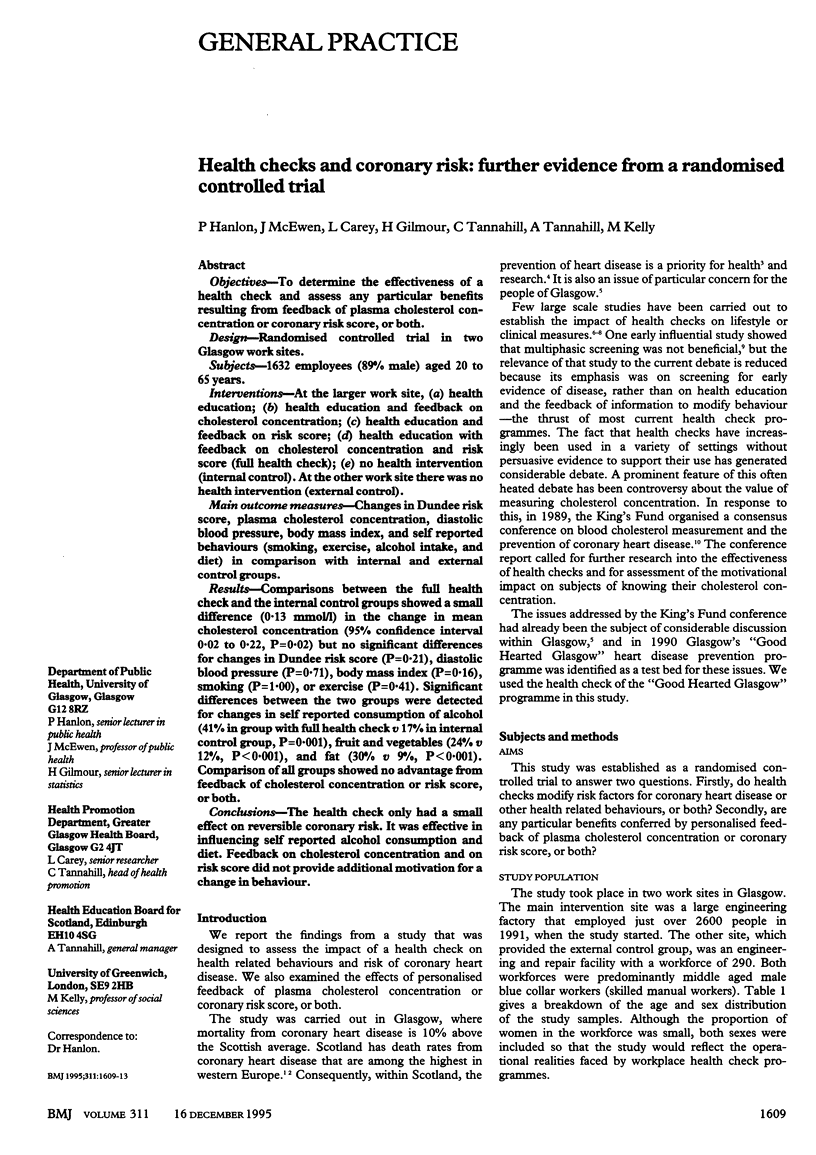
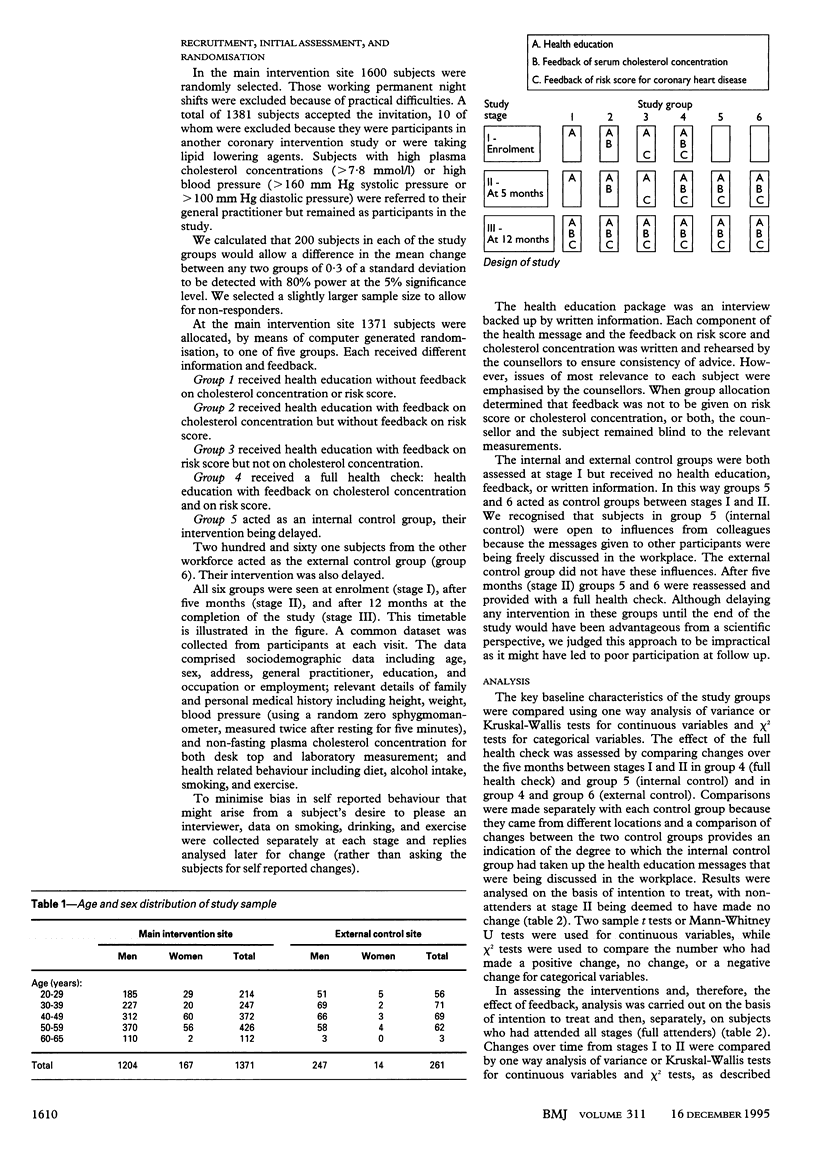
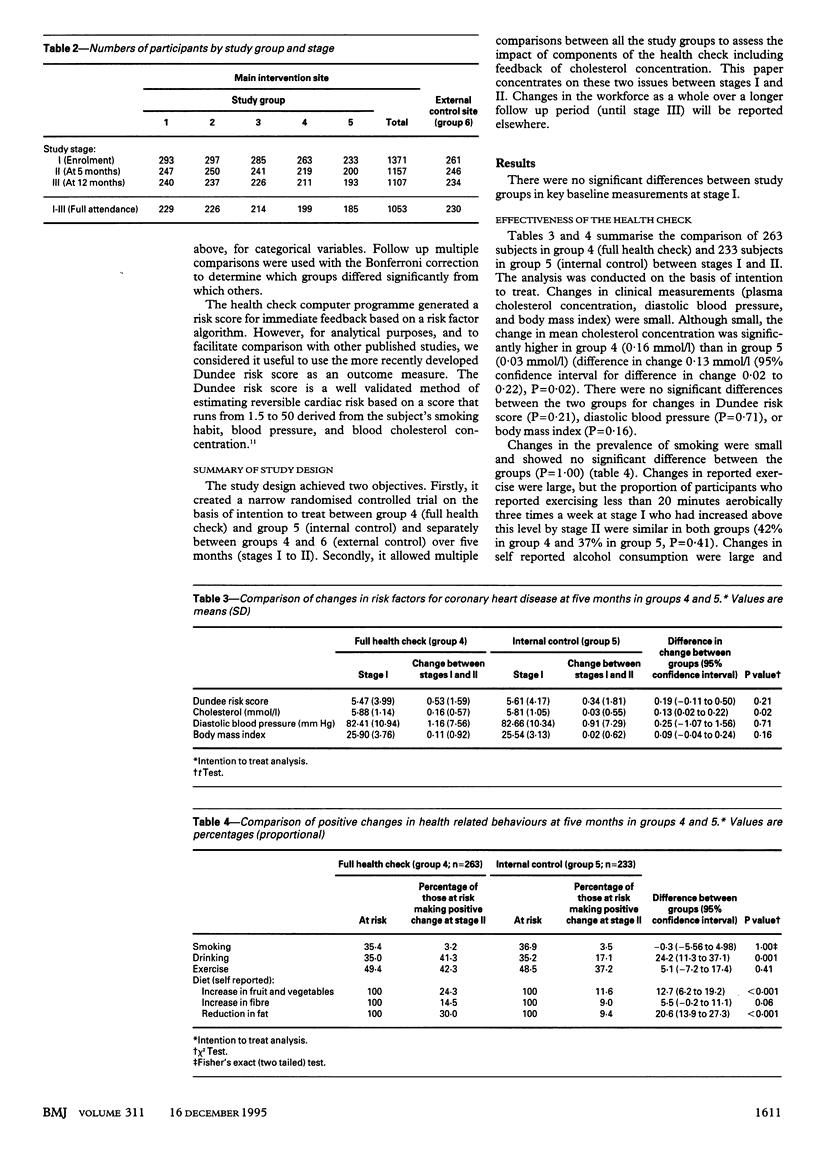
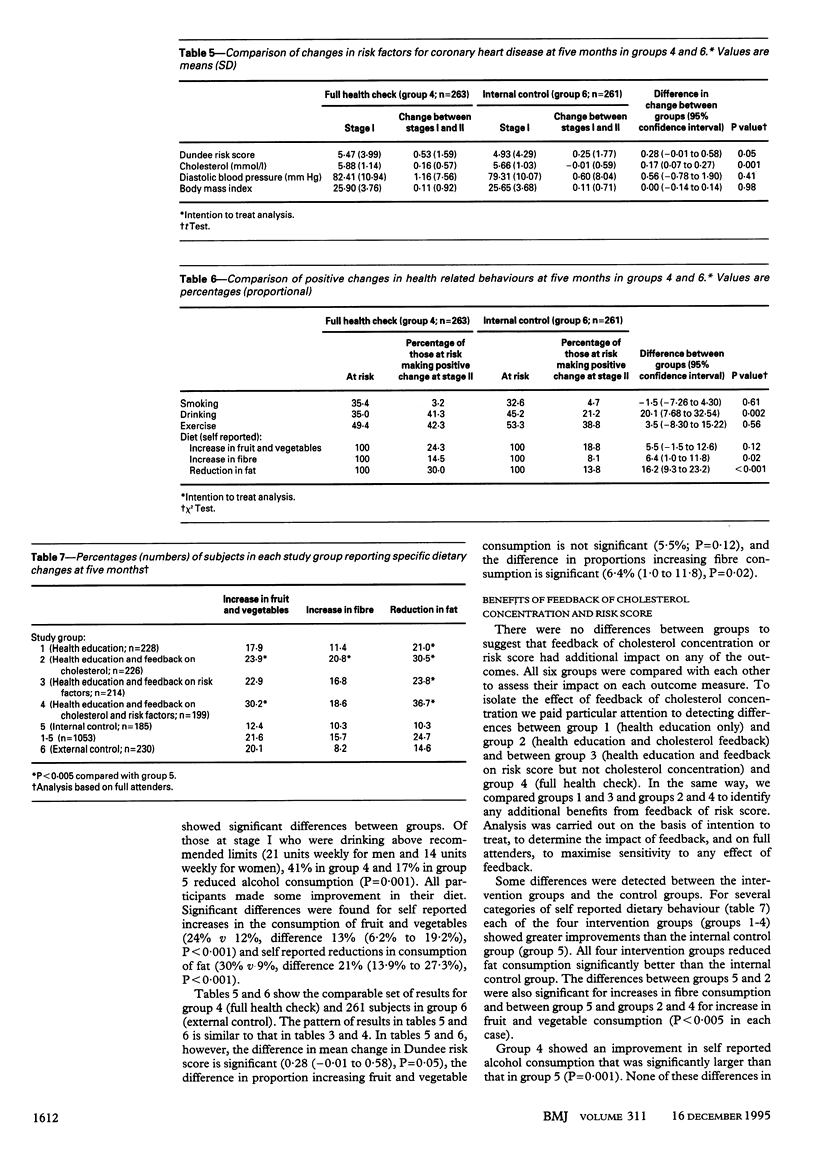
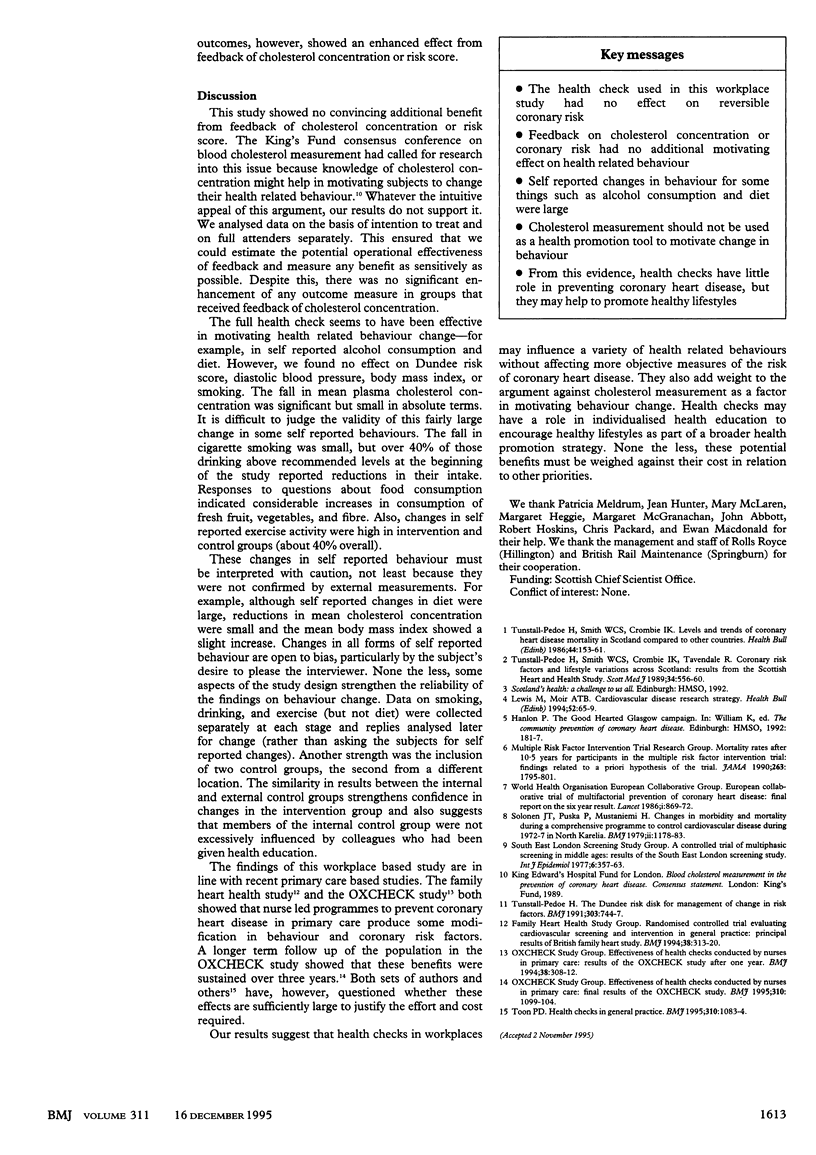
Selected References
These references are in PubMed. This may not be the complete list of references from this article.
- Toon P. D. Health checks in general practice. BMJ. 1995 Apr 29;310(6987):1083–1084. doi: 10.1136/bmj.310.6987.1083. [DOI] [PMC free article] [PubMed] [Google Scholar]
- Tunstall-Pedoe H., Smith W. C., Crombie I. K. Level and trends of coronary heart disease mortality in Scotland compared with other countries. Health Bull (Edinb) 1986 May;44(3):153–161. [PubMed] [Google Scholar]
- Tunstall-Pedoe H., Smith W. C., Crombie I. K., Tavendale R. Coronary risk factor and lifestyle variation across Scotland: results from the Scottish Heart Health Study. Scott Med J. 1989 Dec;34(6):556–560. doi: 10.1177/003693308903400604. [DOI] [PubMed] [Google Scholar]
- Tunstall-Pedoe H. The Dundee coronary risk-disk for management of change in risk factors. BMJ. 1991 Sep 28;303(6805):744–747. doi: 10.1136/bmj.303.6805.744. [DOI] [PMC free article] [PubMed] [Google Scholar]


